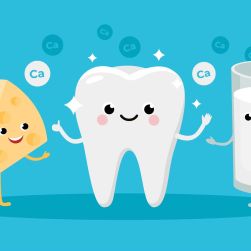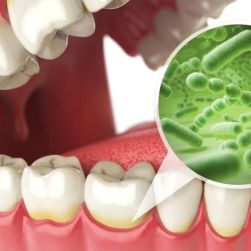The Surprising Link Between Periodontal Disease and Alzheimer’s
When considering the many factors that influence our overall health, one might not immediately connect oral hygiene with cognitive function. However, recent studies have begun to unravel an intriguing association between periodontal disease and Alzheimer’s disease. As we delve deeper into understanding this connection, it becomes increasingly clear that maintaining oral health is not just about preventing cavities and gum disease but may also play a crucial role in protecting brain health. This article aims to explore the evidence behind this surprising link, shedding light on what it means for our understanding of Alzheimer’s and the broader implications for health care.
Understanding Periodontal Disease
Periodontal disease, commonly referred to as gum disease, is an inflammatory condition affecting the tissues surrounding the teeth. It is typically caused by bacterial plaque that accumulates on the teeth. Dentistry Toothtruth notes that if not adequately managed, periodontal disease can progress from gingivitis, the mildest form, to more severe stages such as periodontitis, which can lead to tooth loss.
The signs of periodontal disease often include swollen and bleeding gums, persistent bad breath, and loose teeth. While periodontal disease is primarily known for its impact on dental health, recent research has pointed to its potential role in systemic health issues, particularly its surprising link with Alzheimer’s disease.
The Science Behind the Connection
The connection between periodontal disease and Alzheimer’s lies primarily in inflammation. Chronic inflammation is a known contributor to various diseases, including Alzheimer’s. Researchers have found that the bacteria associated with gum disease can enter the bloodstream, potentially reaching the brain and triggering inflammatory responses. This inflammation is believed to contribute to the development and progression of Alzheimer's disease.
One study published in the Journal of Alzheimer’s Disease revealed that the bacterium Porphyromonas gingivalis, a key pathogen in periodontal disease, was found in the brain tissues of patients with Alzheimer’s. This discovery suggests a potential causal relationship, where the bacterial infection could lead to neuroinflammation, accelerating the cognitive decline associated with Alzheimer’s.
Insights from Epidemiological Studies
Several epidemiological studies have further supported the connection between oral health and Alzheimer’s. A study conducted by the University of Central Lancashire examined brain samples from Alzheimer’s patients and found a significant presence of periodontal bacteria. The study concluded that gum disease could increase the risk of developing Alzheimer’s by inducing an immune response in the brain.
Another research project led by the National Institute on Aging found that individuals with chronic periodontal disease exhibited a higher incidence of Alzheimer’s. Their findings highlight the importance of oral health in reducing the risk of Alzheimer’s, emphasizing the need for early intervention and prevention strategies.
Case Studies Illustrating the Impact
Case studies have provided real-world evidence of the link between periodontal disease and cognitive decline. For instance, a clinical case involving an older adult showed significant cognitive improvement following intensive periodontal treatment. This patient, who exhibited symptoms of Alzheimer’s, experienced a marked decrease in cognitive symptoms after successful treatment of gum disease, highlighting the potential for periodontal therapy to mitigate Alzheimer's symptoms.
These case studies offer promising insights into how maintaining good oral hygiene can influence cognitive health, providing hope for individuals at risk of or currently experiencing Alzheimer’s.
Holistic Health Approaches
A holistic approach to health emphasizes the interconnectedness of body systems. This approach is increasingly being applied to the relationship between oral and brain health. Adopting a holistic perspective encourages individuals to consider dental health as part of their overall wellness strategy.
Practitioners across the globe are working towards integrated health care models that bridge the gap between dentistry and traditional medical practices. Regular dental check-ups, combined with a balanced diet and lifestyle modifications, are pivotal in maintaining both oral and cognitive health.
Steps Towards Prevention
The potential connection between periodontal disease and Alzheimer’s underscores the importance of oral health maintenance. Simple steps, such as regular brushing and flossing, can go a long way in preventing gum disease. Additionally, regular dental visits for professional cleanings and check-ups are vital in detecting and addressing periodontal issues early.
Adopting a preventive approach not only protects your dental health but may also serve as a crucial measure in safeguarding your brain health. Lifestyle changes, diet alterations, and health monitoring can support cognitive function and potentially reduce the risk of Alzheimer’s.
Conclusion: Safeguarding Your Health
The relationship between periodontal disease and Alzheimer’s offers a compelling insight into how interconnected our body systems truly are. Understanding this link can lead to more integrated health care practices and highlight the essential role of dental health in our overall wellness.
Taking proactive steps towards maintaining oral health is an investment in your cognitive future. By prioritizing dental care through regular visits and consistent at-home hygiene practices, you can mitigate the risk factors associated with Alzheimer’s while fostering a healthier mouth-body connection.
For further information on maintaining oral health and its impact on overall wellness, visit Dentistry Toothtruth.






